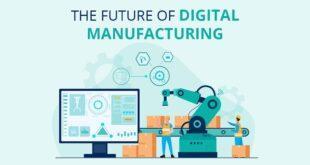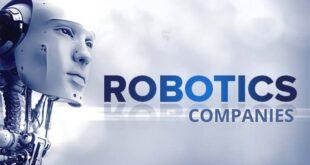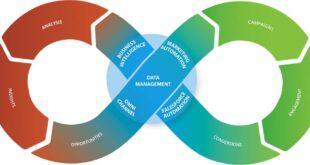Artificial intelligence (AI) has emerged as a game-changing technology for the manufacturing industry. With its ability to process vast amounts of data, analyze patterns, and make predictions, AI can improve efficiency, productivity, and quality while reducing costs and risks. In this comprehensive guide, we will explore 17 use cases of AI in manufacturing and how they can benefit companies of all sizes.
1. Predictive Maintenance
 Predictive maintenance is one of the most popular applications of AI in manufacturing. By analyzing data from sensors, machines, and other sources, AI algorithms can predict when equipment is likely to fail and trigger maintenance before breakdowns occur. This can reduce downtime, increase equipment lifespan, and prevent costly repairs.
Predictive maintenance is one of the most popular applications of AI in manufacturing. By analyzing data from sensors, machines, and other sources, AI algorithms can predict when equipment is likely to fail and trigger maintenance before breakdowns occur. This can reduce downtime, increase equipment lifespan, and prevent costly repairs.
2. Quality Control
AI can also improve quality control in manufacturing. By analyzing data from sensors, cameras, and other sources, AI algorithms can detect defects, deviations, and anomalies in real-time and alert operators to take corrective action. This can improve product quality, reduce waste, and minimize recalls.
3. Supply Chain Management
AI can optimize supply chain management by analyzing data from suppliers, distributors, and customers. By predicting demand, optimizing inventory levels, and improving logistics, AI can reduce lead times, lower costs, and increase customer satisfaction.
4. Production Planning and Scheduling
AI can also help manufacturers optimize production planning and scheduling. By analyzing data from orders, inventory, and equipment, AI algorithms can predict production times, identify bottlenecks, and optimize scheduling to improve efficiency and throughput.
5. Autonomous Robots
 Autonomous robots powered by AI can perform a variety of tasks in manufacturing, such as material handling, assembly, and inspection. By automating repetitive or dangerous tasks, AI-powered robots can increase productivity, reduce labor costs, and improve safety.
Autonomous robots powered by AI can perform a variety of tasks in manufacturing, such as material handling, assembly, and inspection. By automating repetitive or dangerous tasks, AI-powered robots can increase productivity, reduce labor costs, and improve safety.
6. Predictive Quality Analytics
AI can improve quality analytics by analyzing vast amounts of data from various sources, including sensors, social media, and other feedback loops. By detecting defects and analyzing customer feedback, AI-powered quality analytics can help manufacturers improve product design, reduce defects, and improve customer satisfaction.
7. Inventory Optimization
AI can also help manufacturers optimize inventory levels by analyzing data from suppliers, distributors, and customers. By predicting demand, optimizing inventory levels, and improving logistics, AI can reduce lead times, lower costs, and increase customer satisfaction.
8. Predictive Sales Forecasting
 AI can improve sales forecasting by analyzing vast amounts of data from various sources, including historical sales data, market trends, and customer feedback. By predicting sales volumes and trends, AI-powered sales forecasting can help manufacturers optimize production, reduce inventory costs, and increase revenue.
AI can improve sales forecasting by analyzing vast amounts of data from various sources, including historical sales data, market trends, and customer feedback. By predicting sales volumes and trends, AI-powered sales forecasting can help manufacturers optimize production, reduce inventory costs, and increase revenue.
9. Predictive Maintenance Scheduling
AI can optimize maintenance schedules by analyzing vast amounts of data from various sources, including sensors, maintenance logs, and other feedback loops. By predicting maintenance needs and scheduling accordingly, AI-powered predictive maintenance can help manufacturers reduce downtime, lower maintenance costs, and improve equipment performance.
10. Resource Planning
AI can optimize resource planning by analyzing data from various sources, including production plans, equipment logs, and labor schedules. By predicting resource needs, identifying bottlenecks, and optimizing schedules, AI-powered resource planning can help manufacturers improve efficiency, reduce waste, and increase productivity.
11. Production Line Optimization
AI can optimize production lines by analyzing data from various sources, including machine performance data, production logs, and maintenance records. By identifying bottlenecks, predicting failures, and optimizing workflows, AI-powered production line optimization can help manufacturers improve efficiency, reduce downtime, and increase throughput.
12. Customer Service Chatbots
AI-powered chatbots can improve customer service by providing instant support and resolving issues in real time. By analyzing customer feedback and providing personalized recommendations, chatbots powered by AI can improve customer satisfaction and reduce support costs.
13. Supply Chain Risk Management
AI can help manufacturers mitigate supply chain risks by analyzing data from various sources, including weather forecasts, geopolitical events, and supplier performance data. By predicting and preparing for potential disruptions, AI-powered supply chain risk management can help manufacturers reduce risk, increase resilience, and ensure continuity of supply.
14. Energy Management
AI can optimize energy management in manufacturing by analyzing data from various sources, including energy usage data, weather forecasts, and equipment performance data. By predicting energy usage, identifying areas of waste, and optimizing equipment performance, AI-powered energy management can help manufacturers reduce energy costs and improve sustainability.
15. Smart Factory
AI can power smart factories that are connected, automated, and intelligent. By analyzing data from various sources, including sensors, machines, and supply chains, AI can enable smart factories to operate efficiently, predictably, and sustainably.
16. Predictive Pricing
AI can improve pricing strategies by analyzing data from various sources, including competitor prices, market trends, and customer feedback. By predicting demand and optimizing prices, AI-powered predictive pricing can help manufacturers increase revenue, reduce inventory costs, and improve profitability.
17. Cybersecurity
AI can help manufacturers enhance cybersecurity by analyzing data from various sources, including network traffic, user behavior, and system logs. By detecting and responding to cyber threats in real time, AI-powered cybersecurity can help manufacturers protect their assets, data, and reputation.
Frequently Asked Questions
What are the benefits of using AI in manufacturing?
AI can improve efficiency, productivity, quality, and safety while reducing costs, risks, and waste in manufacturing. By analyzing vast amounts of data from various sources, AI can enable predictive maintenance, quality control, supply chain optimization, and other use cases that can enhance manufacturing performance and competitiveness.
What are some challenges of implementing AI in manufacturing?
Some challenges of implementing AI in manufacturing include data quality, integration with legacy systems, cybersecurity, and talent shortage. Manufacturers need to ensure that their data is accurate, relevant, and accessible and that their AI algorithms are reliable, transparent, and secure. They also need to train their employees on AI technologies and practices and hire skilled AI professionals when necessary.
How can manufacturers get started with AI?
Manufacturers can get started with AI by identifying their business objectives, assessing their data readiness, selecting the right AI technologies and vendors, and piloting and scaling their AI solutions. They can also partner with AI consultants and experts who can provide guidance and support throughout the AI journey.
Conclusion
AI has the potential to revolutionize the manufacturing industry by enabling predictive, connected, and intelligent operations. By leveraging the 17 use cases of AI in manufacturing that we have explored in this guide, manufacturers can enhance their performance, competitiveness, and sustainability in the digital age.
 Sale Success Make More Money Online
Sale Success Make More Money Online






